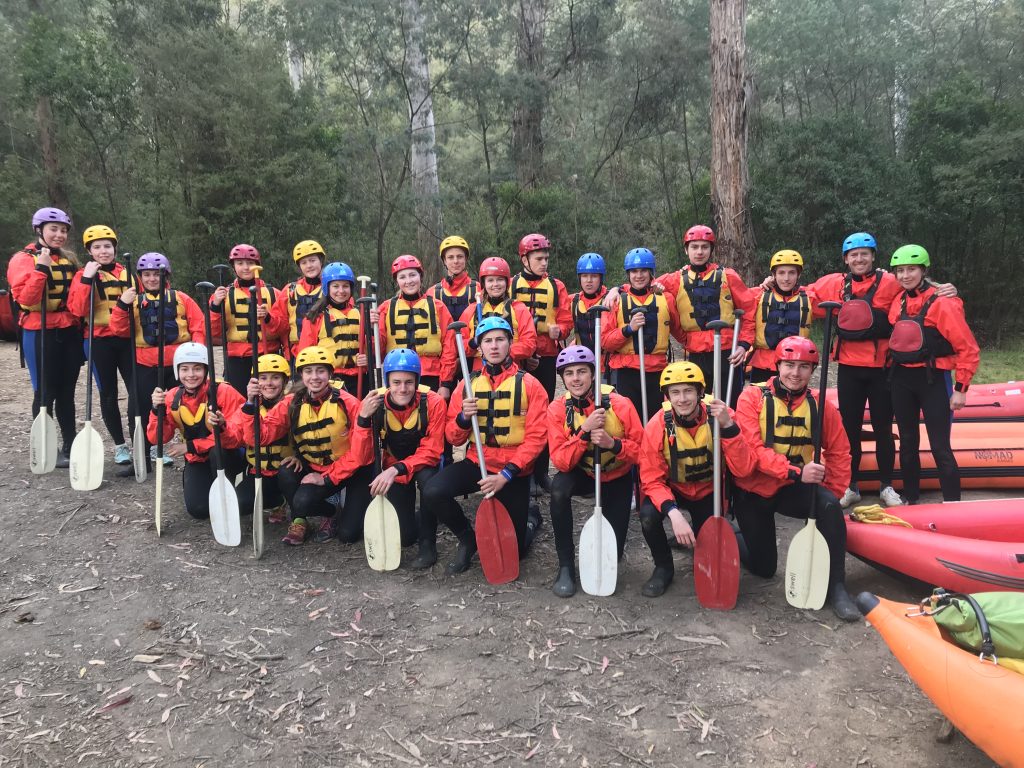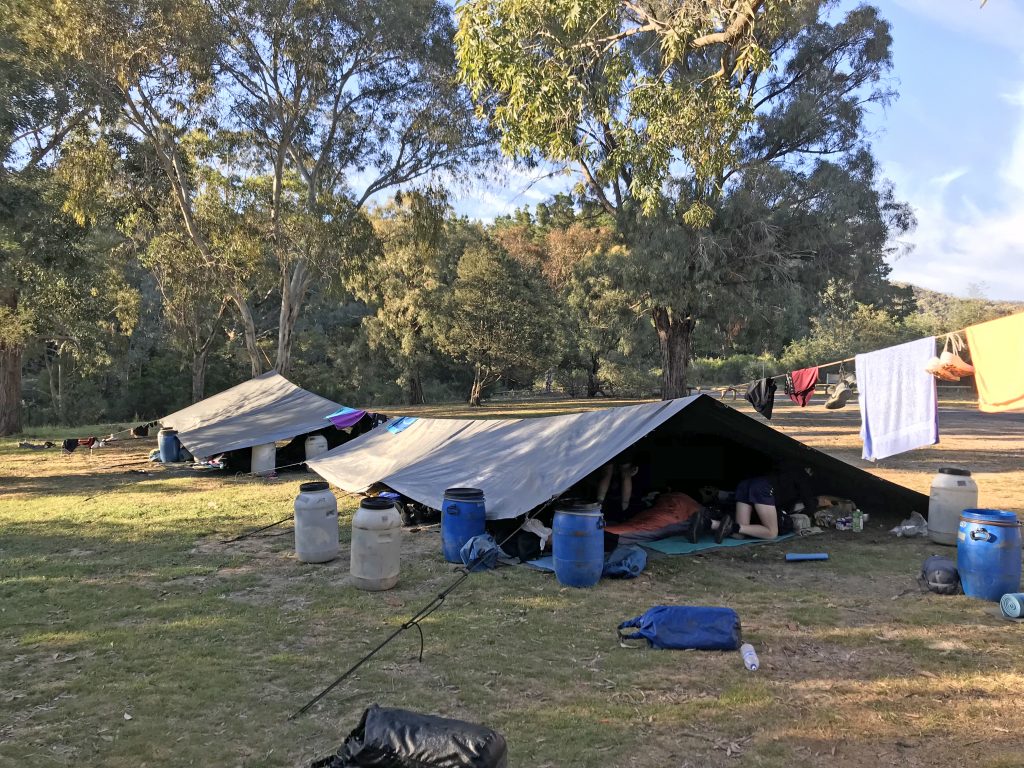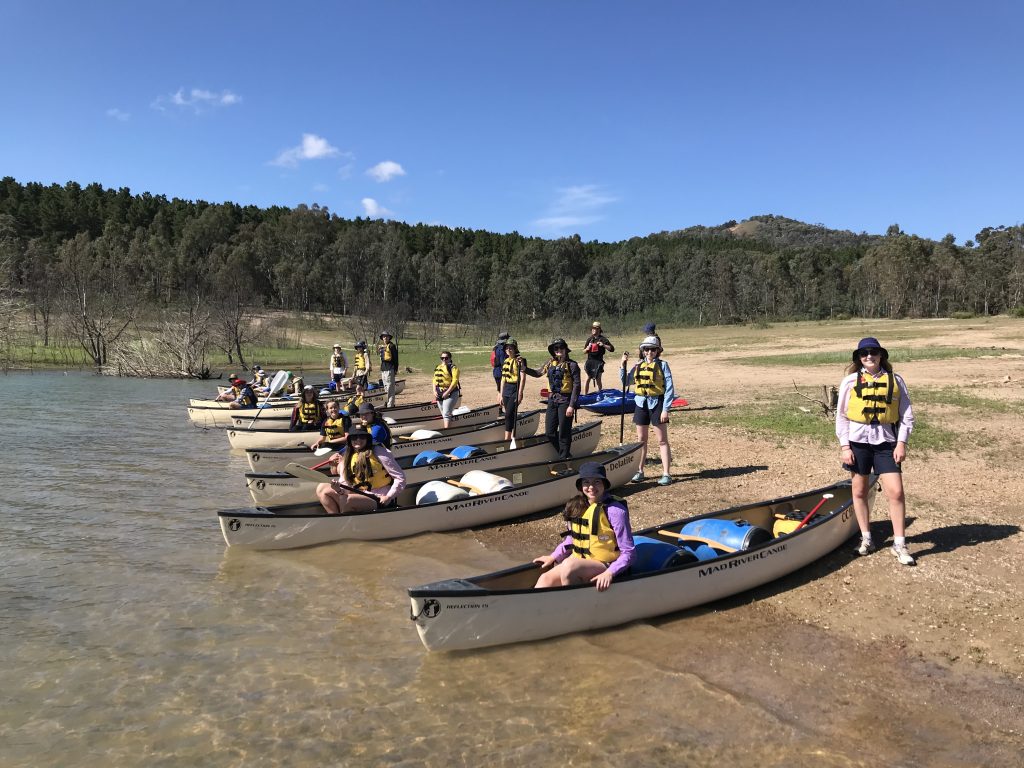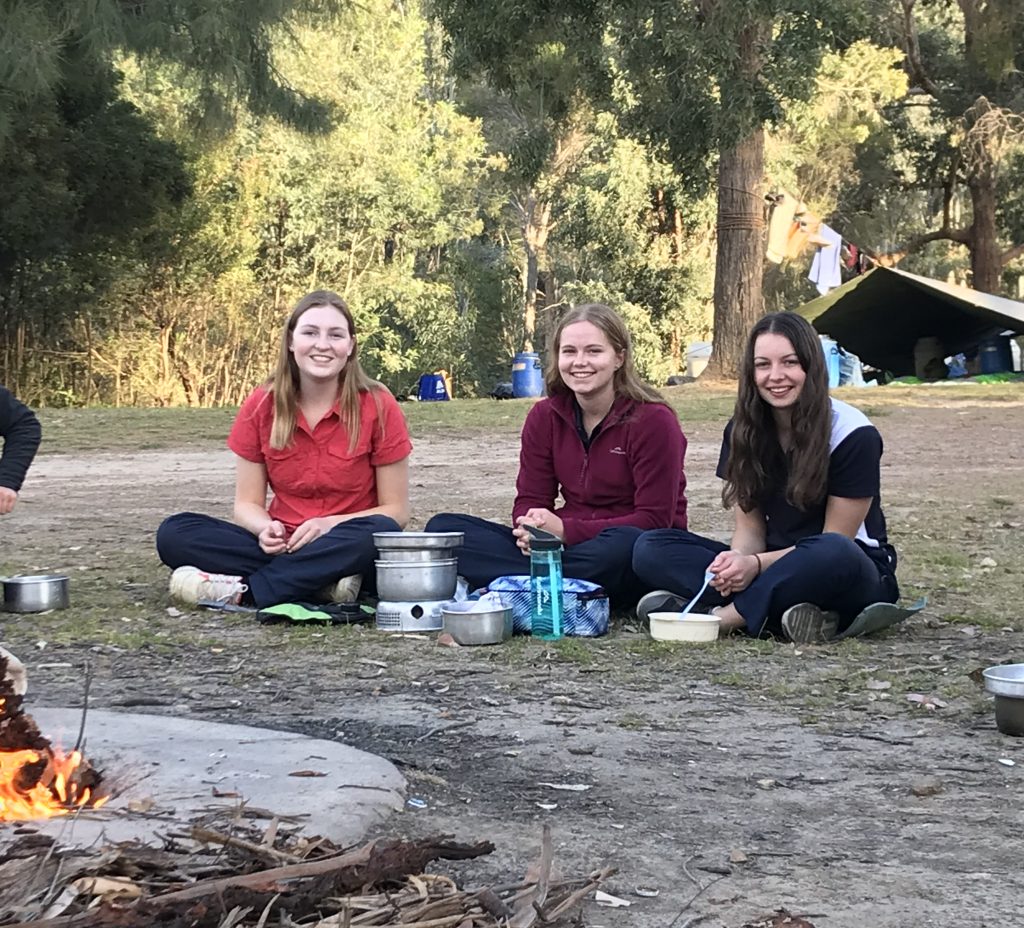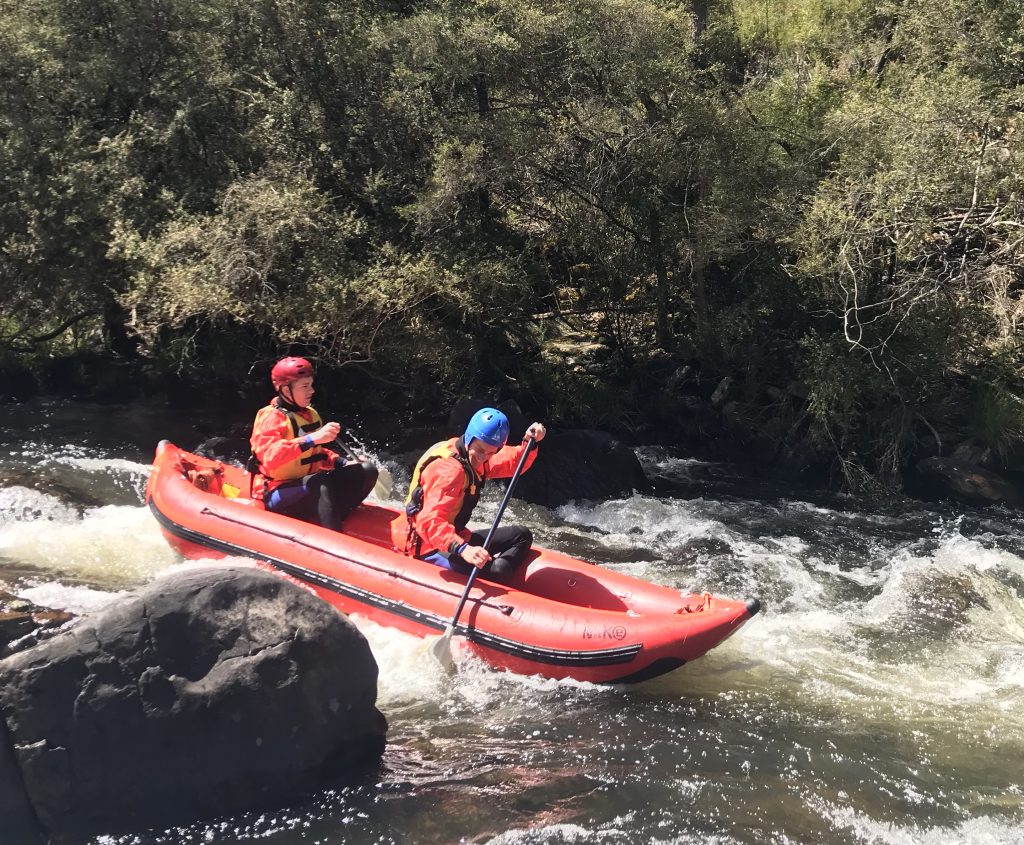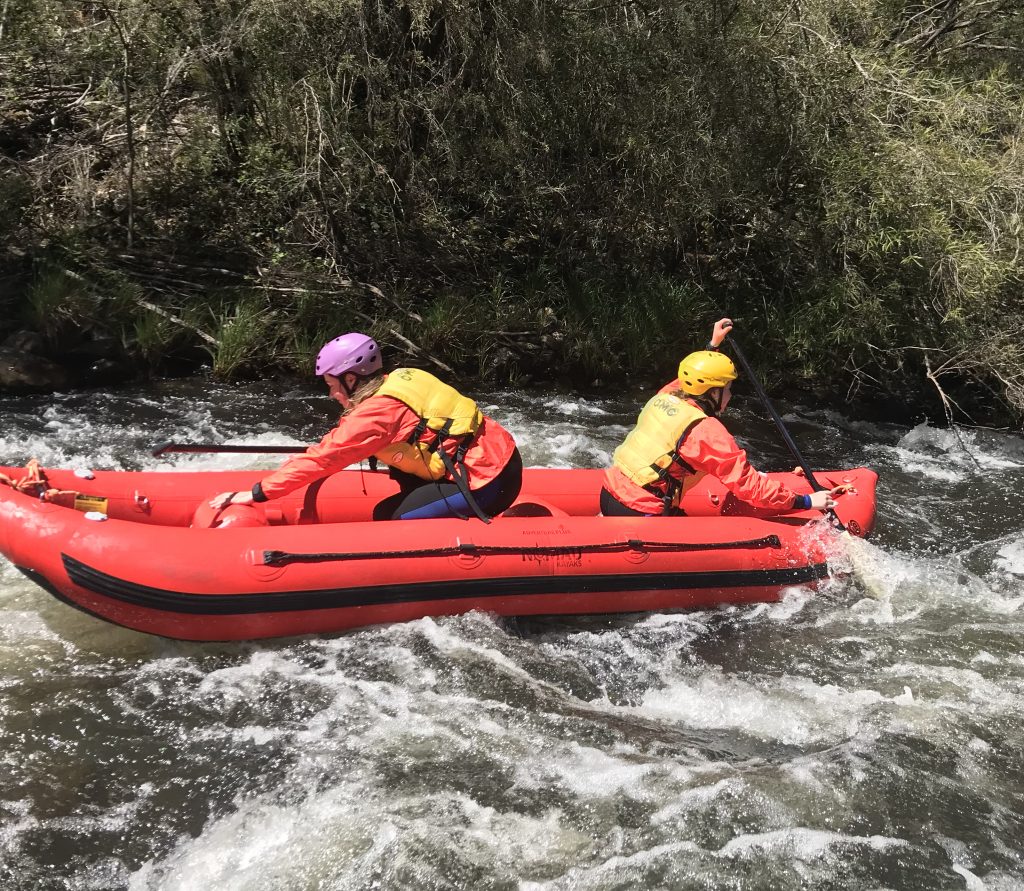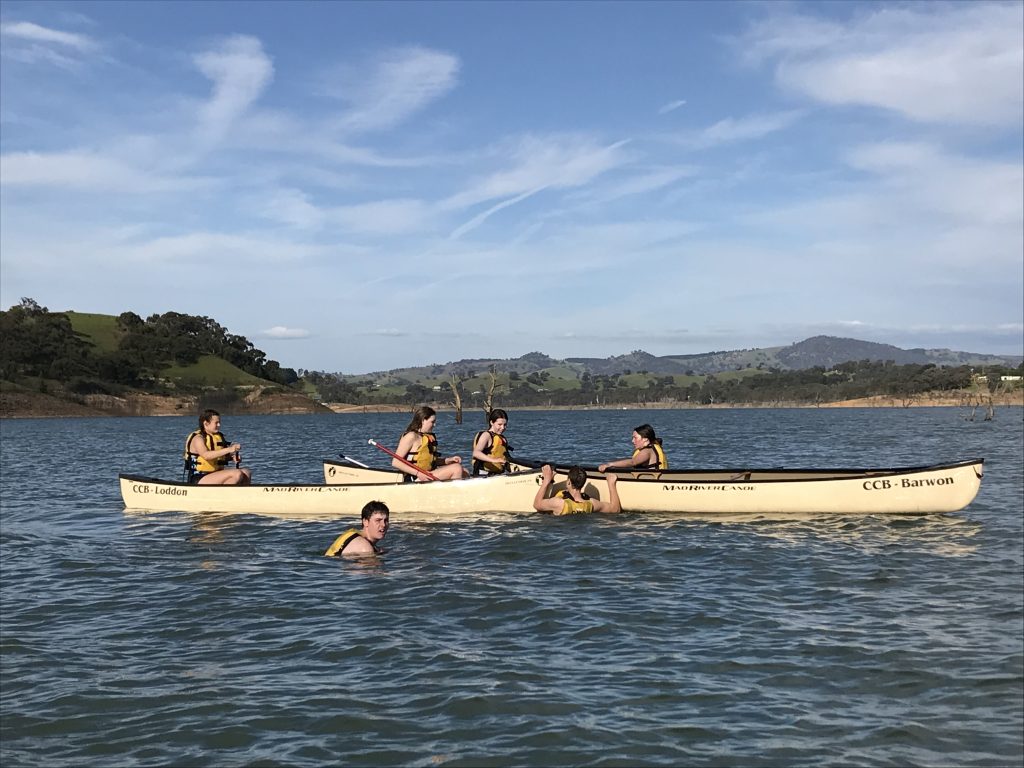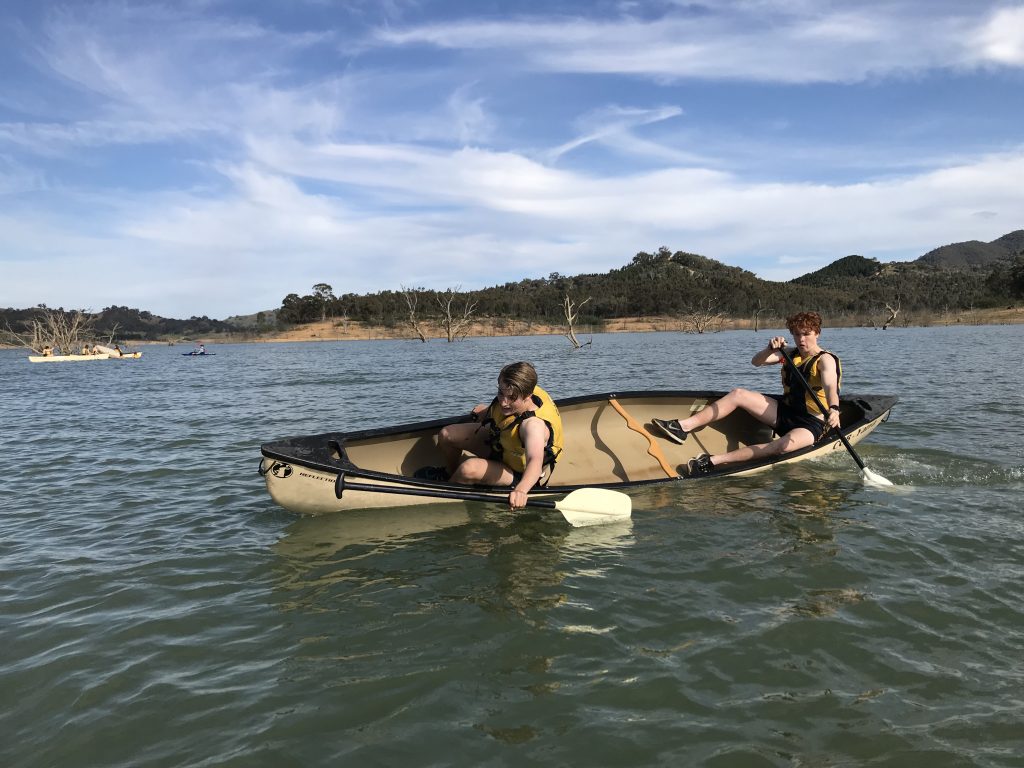Focus on water activities at Lake Eildon & Big River
15/11/2018Recently, Unit 2 VCE Outdoor and Environmental Studies students ventured to Lake Eildon and the Big River to participate in canoeing and white-water rafting activities.
Days 1 and 2 revolved around students developing flat-water paddling skills in canoes, in preparation for their day on moving water where they were required to navigate rocks, rapids, bends in the river, their class mates and tree stumps. Skills learned included the sweep stroke, rudder, draw stroke, steering a canoe and how to do an X Rescue in the event of a capsize. The scenery was amazing and the inaugural CMC Lake Eildon canoe water polo championships were held which helped students progress their skills.
Students examined the environmental impacts of recreational activities such as fishing, camping, skiing and house-boating while the commercial activities of timber harvesting and selling Lake Eildon’s water to farmers along the Goulburn River were discussed. Students were surprised to learn about the links between Lake Eildon and the Alpine National Park which was visited twice earlier in the year for a bushwalk and skiing activities. (The Alps help fill Lake Eildon, which provides water to grow our food). Indigenous relationships with this environment were also examined in preparation for Units 3/4 Outdoor Education studies.
The first night involved camping under large group tarps on the banks of the lake. Great teamwork and initiative were demonstrated by students to construct a suitable shelter.
Day 3 was action-packed. The class split into two smaller groups and learnt the basic skills and safety requirements for paddling on Grade 2 rapids. Our challenge was the Big River. Students laughed and navigated their way down the river. They learned about the impacts of European settlement in the area with a focus on gold mining and increased recreational activities due to advanced equipment. Our Personal Flotation Devices (PFDs), helmets, rafts, paddles and vehicles all contributed to a safe and enjoyable trip, but the direct and indirect environmental impacts of this equipment was a big talking point on our journey down the river.
This adventure concludes Outdoor Education camps for 2018. Hopefully students can take the knowledge learned throughout the year to enjoy our beautiful outdoor environments, while having minimal impact through their interactions.
Mr Rohan Bowles, Outdoor Education Teacher


